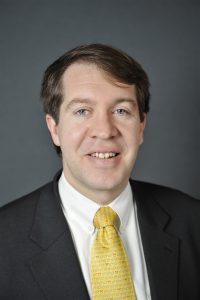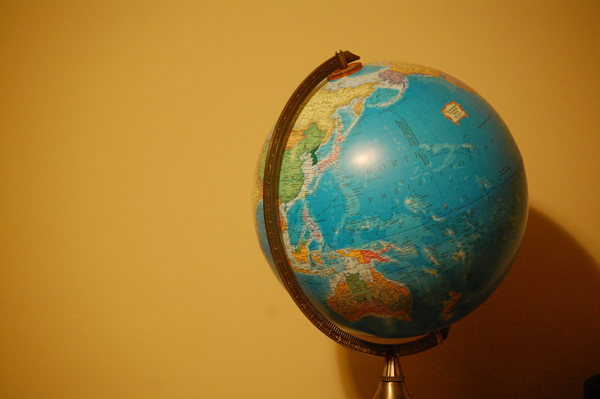WASHINGTON — South Korean President Moon Jae-in will face pressure to align with the U.S.’s policies on North Korea without alienating his supporters at his first official meeting with President Donald Trump, according to a U.S. expert.
“President Moon seems to have moved rather quickly from some of the positions he had taken during his campaign into a set of positions that are designed to promote alignment with the United States,” Scott Snyder, a senior fellow for Korean studies and director of a program on U.S.-Korea policy at the Council on Foreign Relations, said in a phone interview with Medill News Service, Wednesday.

Scott Snyder is a senior fellow for Korea studies and director of the program on U.S.-Korea policy at the Council on Foreign Relations. (Photo courtesy of the Council on Foreign Relations)
“On almost every issue that is likely to come up at the summit, it seems President Moon is staking out a position of commonality with President Trump,” Snyder said.
“The convergence and alignment that the Moon administration has been pursuing is related more broadly to the strategic context that South Korea finds itself in. There are more tensions in the neighborhood than there were, say, 10 years ago.”
Snyder said Moon’s initial approach to North Korea may have resembled that of the late President Roh Moo-hyun, but changes in today’s environment make it difficult for Moon not to align with the Trump administration’s policy of “maximum pressure and engagement.”
One example is the recent death of Otto Warmbier, an American student who was arrested and detained in North Korea before being sent back to the U.S. in a coma earlier this month. He has since died.
“The case dramatizes and personalizes the negative consequences of direct exposure or vulnerability to North Korea,” Snyder said. “In the broader sense, that’s precisely the same issue that’s being debated regarding the North Korean nuclear program. The Warmbier case symbolizes the vulnerability and strengthens the desire of the United States’ political leaders not to want to be vulnerable in that way to the North Korean leadership.”
THAAD conundrum?
In recent weeks, Moon, whose support for economic cooperation with North Korea and reluctance to deploy a Terminal High Altitude Area Defense (THAAD) missile defense system had initially conflicted with Trump’s views, has become more vocal in his support for Trump’s policies.
Some of the fundamental differences in the two presidents’ policy positions, however, may still be broached at the summit, Snyder said.
Earlier in June, the Moon administration ordered an environmental impact assessment of the THAAD system, delaying the deployment of additional launchers in Seongju County. The assessment is estimated to take a year to complete.
“From the U.S. perspective, there’s going to be a lot of pressure from Capitol Hill and from the administration to expedite that process,” Snyder said. “On the U.S. side, there’s probably a desire to see an environmental review that maybe takes just a few months.”
President Moon earlier said the assessment does not suggest a reversal of the decision to deploy THAAD.
Even if the Trump administration understands Moon’s need for domestic transparency regarding decisions on the anti-missile battery, it would first be weighed against considerations of national security, Snyder said.
“North Korean missile developments have proceeded more quickly than people had anticipated, and in response, the U.S. would like to get the system in place, really as part of risk minimization and as part of efforts to protect U.S. forces that are dedicated to defending South Korea against any North Korean attack,” Snyder said. “It’s more like an insurance policy. If you don’t have it, there’s a greater sense of vulnerability.”
‘China challenge’
Meanwhile, China has been a vocal opponent of THAAD deployment, retaliating by closing down more than 20 retail stores there owned by South Korea’s Lotte Group. According to Snyder, South Korea has been caught in the middle of a power struggle between the U.S. and China, becoming the main object of punishment by China and bearing the economic costs of aligning with the U.S.
“I do think the U.S. and South Korea should offer to jointly brief the Chinese on the technical and political issues around the deployment,” Snyder said. Discussions between the U.S. and China on the capabilities of THAAD, as well as the need to respond to North Korea’s growing missile capabilities, would assure China that the missile system is not meant to address any potential military action from China.
Other topics the two leaders may discuss include the Korea-U.S. Free Trade Agreement (FTA). Prior to the summit, South Korean business leaders accompanying Moon on his trip will attend a Korea-U.S. Business Summit. They will likely weigh in on the benefits of the FTA and urge the Trump administration not to hurt current economic cooperation.


